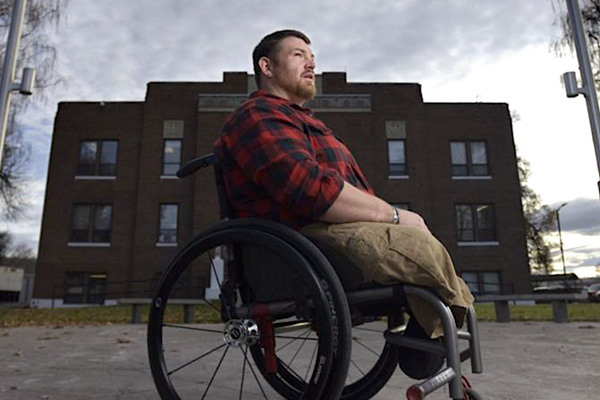Long Road to Healing –
November 9, 2019 – One in six Iraq and Afghanistan veterans also suffer with a substance abuse disorder, according to Justice for Vets, which advocates for reforms for veterans in the justice system; the organization counts 25% of veterans as identifying as mentally ill prior to incarceration.Roughly 9% of veterans and military members who served in Iraq and Afghanistan have been arrested since their return as well, according to a report cited by the Department of Veterans Affairs. Tomy Parker is a Ronan veteran who hit a bad skid of abusing painkillers, and did jail time after he returned from Afghanistan. He isn’t alone.In the justice system, 81% of veterans have a substance use disorder prior to incarceration, according to the advocacy organization Justice for Vets.And in Montana, arrests for drug offenses spiked from 2011 to 2015. According to a report from the state’s Department of Justice, arrests for methamphetamine possession increased nearly 500% in that period, and those for heroin increased over 1,000%.In Lake County over just one year, felony charges for possession of dangerous drugs tripled, going from just over 200 in 2012 to 600 in 2013. Last week, Parker parked his wheelchair in the office of Kenny Denny, his probation officer. Denny doesn’t prescribe every new treatment model, but said probation programs are getting better at identifying specific needs for specific people, such as veterans, struggling with addiction.
“You’re so much more relaxed than my other PO’s,” said Parker, wisecracking at every opportunity. Both men laughed because they were both acutely aware Parker had his rounds through the criminal justice system, with 18 months spent incarcerated since March 2017. But despite all the painstaking details Parker must fork over to gain access to the world, his relationship with Denny is different than that of his past probation officers. As veterans, it’s like they had a history even before entering each other’s orbits. In cases such as Parker’s, Denny said he is able to establish a relationship with them because he can identify with some of their traumas, and recognizes their ensuing traumatic brain injuries and post-traumatic stress disorders. A common denominator with civilians and veterans who find themselves in Denny’s office is a past of physical abuse, he said.



